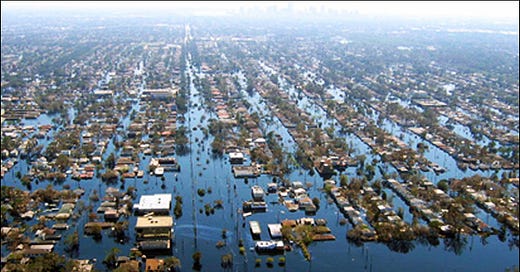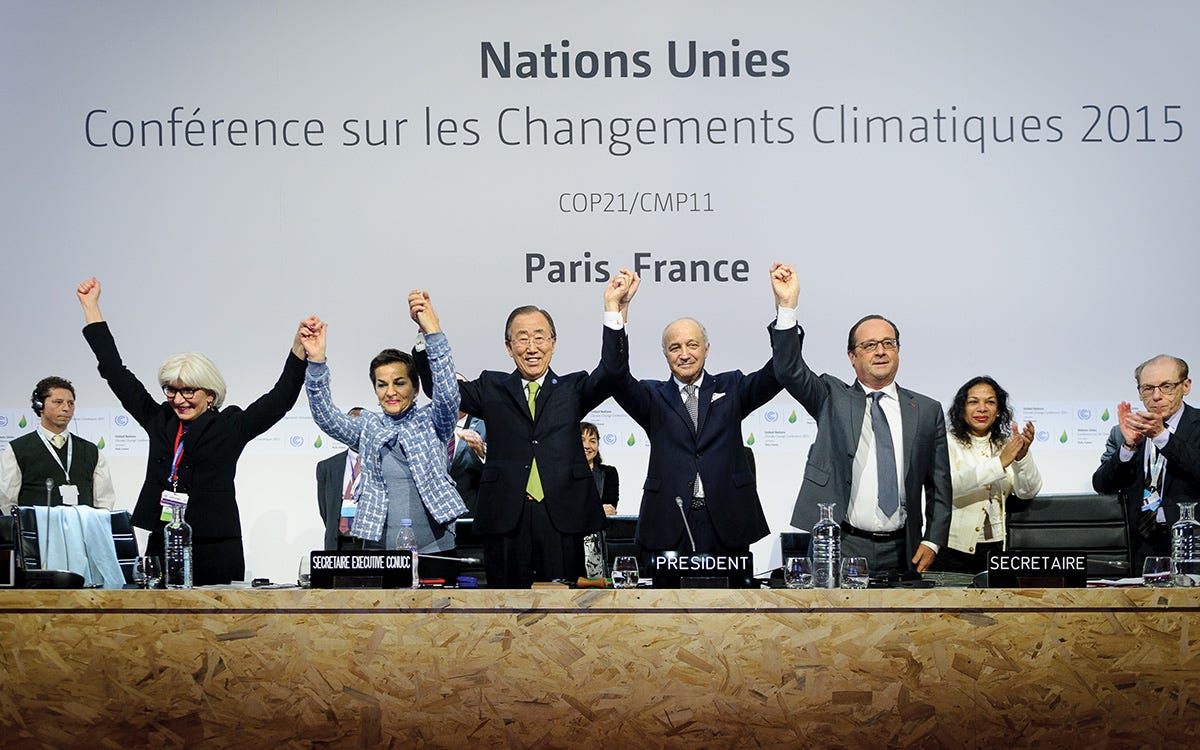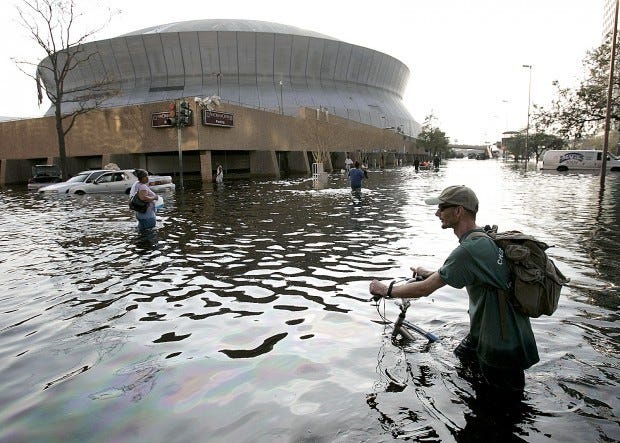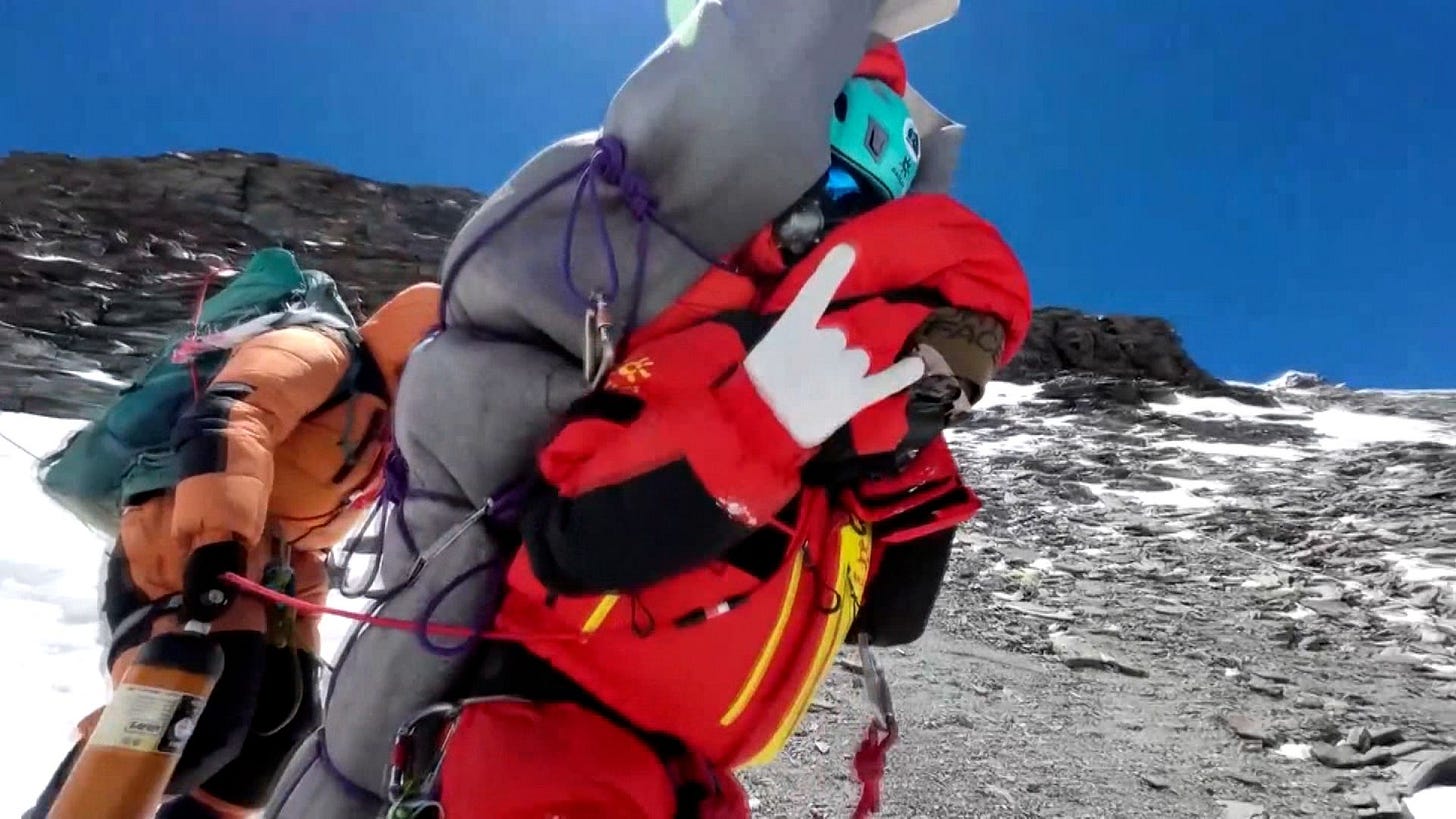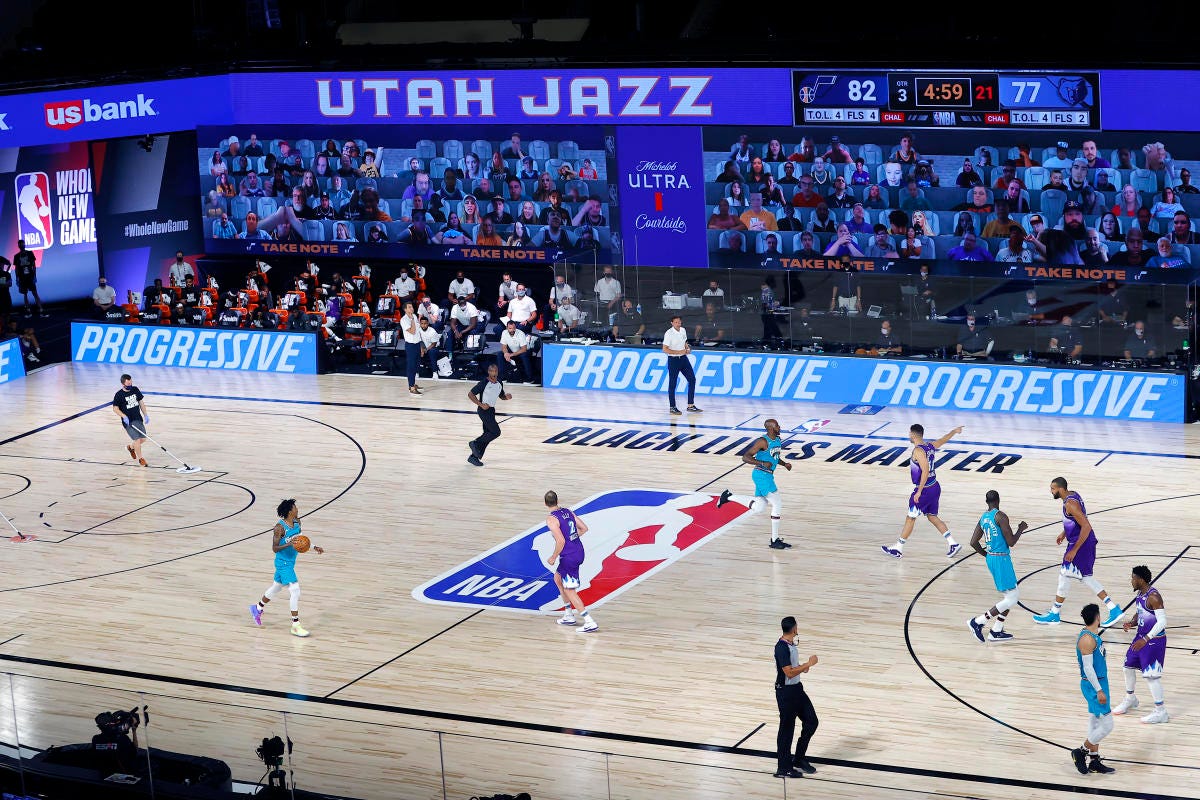[AJ Freeman *human byline art c/o yurazenvisuals*]
It’s Monday afternoon, and that means it’s time to get On the Job! In this week’s edition, we endeavor to understand how our systems really work, one dollar at a time.
At any rate, I’m AJ Freeman and “This Was a Real Job.”
This Week in Work: Real Talk
The systems that define our society are so often arranged as if forces beyond our control can be negotiated with. Border lines drawn where problems can cross jurisdictions most easily. Contracts between regional governments agreeing to share more water than is in a given river. Pinky-swears to save the planetary biosphere by drastically cutting emissions “eh, in like a decade or whatever.”
Still, at times there comes a confluence of circumstance that forces us away from pacifying platitudes and toward honest assessments of the factors at hand. Nonsensical frass like “patience is a virtue,” “hard work always pays off,’ and “violence is not the answer” can be quickly swept aside when material circumstances demand, and this is the fountain from which Real Talk flows.
Earlier this summer—the coolest such season for the rest of our lives, dontcha know—we discussed how our rapidly warming world is finally beginning to be factored into the calculations of Very Serious People…loudly and publicly. It began in earnest amid the First Great Smokeout of 2023, when the (ongoing) Canadian wildfire season affected air quality clear across the continent.
Naturally, by and large nobody took it seriously. A few outdoor events got canceled, people complained online, and a baseball game or two got postponed…nothing that doesn’t happen after some everyday occurrence like a chemical spill or mass shooting. Nothing to get upset about, that’s just life in the States.
At least, that was the predominent attitude among folks not being paid to take it seriously.
In the gleaming glass buildings inhabited by the masters of our universe, the discussions are apparently taking on quite a different timbre. Following suit with the the hottest trend out of Cali—major insurance companies leaving the state due to the increasing likelihood of paying out policies—insurers are cutting their losses in Louisiana, hoping to let the good times roll somewhere else.
If you’re reading the wrong news stories, it can be easy to fall into the delusion that things are better than ever and the future for most is bright…but as they say, “money talks,” and when it does have something to say it rarely messes around with politeness. Reading the right ones, you’ll quickly notice that professional investors are clearly indicating that the future is not a lucrative investment.
That’s Real Talk.

Now of course, that’s not to say that the financial industry has collectively decided that there is no money to be made selling insurance in Louisiana, that’s ridiculous. Number one, any driver can still easily get coverage from an insurer in the state for a nominal 17.3% increase over last year’s rates. Secondly, if you happen to operate an oil rig out in the Gulf, you can have your pick of policies.
That’s right, even at the height of an exodus from the regional insurance marketplace, Louisiana-based firms are only too happy to compete for the business of insuring new energy extraction endeavors. Oil and gas facilities have been practically growing out of the Gulf Coast in recent years, these billion-dollar installations all insulated from life on Earth with ironclad coverage.
This regional renaissance in fossil fuels comes even as the product generated contributes to the concerns of local insurers, wary of the intensified hurricane season and more regular coastal flooding that make Louisiana such an increasingly bad bet in the era of climate chaos. Here, talkative money elucidates the concept of “value” and its kaleidoscopically shifting nature.
It’s kinda funny: in a casino, structured around “random chance,” attempting to manipulate outcomes using an advanced understanding of play mechanics might get your thumbs realigned in some unadvertised game room. On the other hand, in real life, which is supposed to be less predictable and more fair, putting that same thumb on the scale of society guarantees yearly record profits.
Incentive is a fascinating concept.
Whatever insurance companies in Louisiana officially wagering on profits over people says about our shared future, it certainly doesn’t say that the smart money is on any near-term transition away from fossil fuels…not today, not tomorrow, and most likely not in like a decade or whatever. At least, it’s not currently on the schedule that has been set in our world’s halls of human power.
…and that, my friends, fans, and followers, is Real Talk.
Maybe Update Your Resume: Zoom Marketing Department?
The article you’ve been reading over and over during the last couple of years has finally been proven relevant: the remote work revolution is dead.
Well, it is if you ask around the Zoom offices, at any rate.
The company, known chiefly (perhaps exclusively) for its popular teleconferencing software, recently announced a renewed push to get its employees back into the office. It certainly seems like a remote communication utility aimed at professionals would emphasize the use of its own product internally, but then again I’m not in marketing any more so what do I know?
Listen, we could get into a whole thing about how having to budget time and money for a daily commute to work effectively amounts to a pay cut, or how remote work has opened opportunities for segments of the population that have difficulty accessing the world we have built, or how less travel (particularly for something as menial as most jobs) could go a long way in lowering emissions.
…but we’re gonna keep this segment pretty short since we just acknowledged none of that shit actually matters in our opener, so let’s just skip to the end of the diatribe. Zoom isn’t good enough for Zoom, there it is.
Zoom is not the only organization demonstrating a zealous commitment to onsite employment and the Old Order. Google is also advocating for a lower-tech employee experience through hybrid work initiatives designed to keep its dedicated staff as physically close to campus as possible at all times.
In fact, Big Searchbox is offering a special summer sale on its onsite employee accommodations, offering “Googlers” the chance to sleep in the hotel right on its Bay View, CA campus for just $99/worknight.
It’s like living at work, only you pay your boss to do it!
Now, I’ve been told to never assume malice where incompetence would fill in the blank, so let’s go with that in this space. Eschewing such assumptions, this inspired initiative at Google couldn’t possibly be a naked admission that when a job can reasonably be performed to high quality offsite, a significant slice of the traditional work structure’s benefit is total control over employee activity.

Perhaps this is a misguided attempt to protect the company’s staggering investments in commercial real estate—like, yaknow, a fucking onsite employee hotel—from “the scourge of remote work” (big lol).
Those property taxes can’t be going down, particularly in sunny, shiny California.
Returning to loop the recent push for onsite work at Zoom back in, perhaps the dogged determination to drag non-essential employees back to work is a result of recent guidance from the White House, the apparently sentient office building that has urged an “aggressively executed” return to its various agency offices.
Maybe the office water cooler is just that powerful.
What is beyond dispute in the renewed enthusiasm for onsite work at some of the largest entities in business and government is that the employment environment has yet to find a lasting balance between the desires of the employee and those of an employer…after all, progress is never set in stone, but instead represents a series of lines in the sand.
Cannot Be Unseen: Lone Wolf, Fur Coat
Speaking of remote work, in the wildernesses of Planet Earth is the last place most people would expect to find a job, but when a group of random people compete to see who can die the slowest outside the confines of civilization and decide the winner of a grand monetary prize, that sounds like employment to me.
I’m sure you’re familiar with the genre: you’re dropped off on the far edge of nowhere, alone, afraid, occasionally naked, and must outlast the other grizzled outdoorsfolk using only a limited set of tools and whatever you can find.
Of course, this means only one of the contestants gets what might be considered fair market value for the investment of time, expertise, and physical suffering required to generate the content, but again, this is inherent to the nature of a system which so very clearly delineates winners and losers.
In any event, I was watching one such show recently—doesn’t really matter which one, there’s a lot of the same show type on whatever streaming service you’re subscribed to because the market values innovation—when the realization that none of this was actually possible hit me. Like, not impossible in the “sprinkle of TV magic” way…impossible in the “dead inside a week” way.
Like, I have no doubt there are some highly successful recluses far our in no man’s land…well, at least until their physical capacity is diminished in any way. Living in a Unabomber shack a day’s walk from the nearest road is a young person’s game, to say nothing of requiring a fully able body in peak condition.
More than one contestant suffered an ailment that we city folk consider trivial and lost it all…tummyaches, ouchies and boo-boos have taken out some of the toughest, most hardened wilderness survivors ever profiled in a niche magazine.
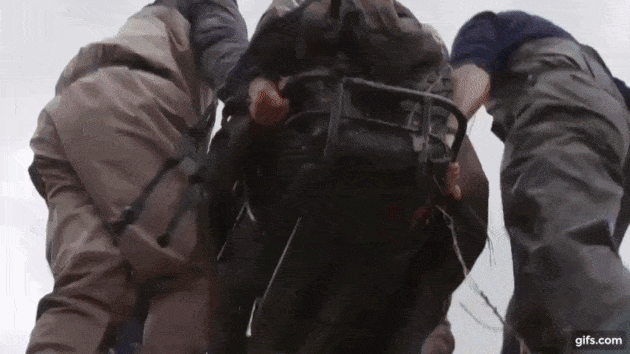
You might also think of uncontacted tribes when you consider stories of sustainable survival, but raising such tribes in a counterpoint to this contention ignores certain fundamental advantages they enjoy, namely 1) millennia of historical knowledge of how to coexist within the landscape and 2) a tribe.
It calls to mind the idea of being self-made, that any achievements in this world can be attributed entirely—surface to screws—to the efforts of one human being.
While many people do subscribe wholly to this theory, I have my reservations about it. While I certainly agree that an individual can shape their circumstances into an entirely unique form, any actions that led to such an outcome, positive or negative, are partially a product of the world around them.
As it relates directly to the widely broadcast wilderness survival competition, this illuminates the collaborative nature of practically any human activity. It’s not always as directly in your face as a sherpa dragging people with too much money up and down the tallest mountain on Earth so some bored idiot can seem more interesting at some boring party…these debts can be much more subtle.
The person that taught them to build a fire, whoever’s handling their affairs back at home so all their worldly goods are not discarded when the rent isn’t paid, the trained medical team that comes by once a week to administer more healthcare than many adult Americans will receive in their adult lives. Each of these contributors have facilitated a given outcome, and share a stake in its fruition.
It’s the realization that comes when you consider that a lone wolf is one that has become useless to the pack and has been cast out to die.
You see, to paraphrase another broadcast perspective, “we’re all born naked and the rest is borrowed.” That much is obvious to some of us, but judging by the level of performative independence in our society, it’s clearly not common sense.
To be fair, I did learn a lot from the survival pageant…how to preserve food, how to fashion a gill net, various hut construction techniques…must have missed the days in 2nd grade when these things were taught, but hey, better late than never. If I’m ever unexpectedly stranded far from civilization for a few days, I have a slightly better shot at surviving long enough for someone to help me out.
Still, I haven’t developed any delusions that I could endure outside of society for any appreciable length of time.
You often hear people fantasize to people they know about leaving everyone they know behind and living far away alone forever (maybe a bit less since that one time civilization shut down and we were all locked in our comfortable homes for a few weeks) or stoically surviving some catastrophic event in a basement full of beans and bullets, but if TV is to be believed, there’s really no such thing as alone.
If not, then Hobbes had a point about the whole “nasty, brutish, and short” thing.
Hope Spot: Take Me Out Of The Ball Game

Finally, we wrap up this week’s paper chase with the traditional human interest story, this one centered on America’s favorite pastime: privatizing public funds!
The Major League Baseball franchise known as the Athletics, currently of Oakland, is keen on a move to Las Vegas, where a massive new stadium is being planned to welcome the team to town because gambling on baseball is bad.
While city and state officials are clearly enamored with the possibility of yet another money machine in America’s Toybox, a few angry education workers have seen enough of the Nevada’s model of civic function. The state Teachers Union is stepping up to the plate (okay I’ll stop), forming a Political Action Committee dedicated specifically to stopping public investment in the stadium.
For context, Nevada has long lagged behind most of the US in educational investment, with recent rankings placing the state at the bottom with perennial cellar dweller Mississippi. Even our international audience understands that being in any category with Mississippi is probably not great.
These shortfalls in Nevada’s educational resources are most often blamed on lack of funding, which seems less plausible every time you scroll past someone who couldn’t come up with an idea for a better vacation walking around Las Vegas with one of those extra-tall vessels of taxable liquid on social media.
You could also assume that the underfunding of state schools is intentional, in order to guarantee its crown jewel the labor class it requires for the longest ongoing entertainment spectacular in the Western world, but we just promised (you did promise, I heard you!) never to assume malice where incompetence fits.
Maybe the ineptitude in Nevada’s civic management comes from the fact that local government officals likely went through the Nevada state school system.
Huh, maybe at a certain point incompetence and malice merge.
All that having been typed, it’s not like I’m here to take shots at the Oakland A’s specifically. It’s not like the individual franchise matters in any real way, especially this one, who once had a movie made about how they innovated a new system of cost-saving player evaluation and did not win a championship.
The TV tries its hardest to convince us otherwise, but world does not spin and will not stop because of the Oakland Athletics or any other sports team.
No, what I draw hope from in this story is the fact that people are finally beginning to see through the rose-colored visor placed on society by sports. You see, I’ve long been of the opinion that sports just take up too much bandwidth in our society. Too much space, time, money, attention, and resources are dedicated to what is effectively a series of children’s games with phenomenal production.

I don’t, like, hate sports. I grew up playing sports, and joining a team at any age is a great way to make friends and stay in shape. I can’t explain the infield fly rule to you or anything, but I don’t think anyone can so that’s not a personal failing. I can identify logos for every major North American pro team at a glance. Hell, I can tell you who won most Super Bowls between my birth and the mid-2000s.
Still, it’s hard not to see how high they are on society’s list of priorities. We literally had to have them during a pandemic or risk shredding the social fabric.
As you may know, that’s by design. In fact, pro sports in its modern, massively monetized form have their origins on the job, as companies sought to occupy their employees’ remaining time after work hours with team-building activities…if you’ve ever found yourself wondering why the oldest pro sports franchises worldwide are named after, like, Arsenals and meat Packers, wonder no more.
The commercial enthusiasm for pro sports carries through to today, as not only are sporting events a vehicle for advertisement the way tortilla chips are edible salsa spoons, but the more time you spend watching sports on the weekend, the less you spend thinking about why you have a full-time job and the only activity you can afford after rent, bills, transportation and food is watching sports.
I’d be willing to go so far as to say that I know aliens have never visited Earth, because if anyone not from around here came down and saw the share of society that we dedicate to the sports-industrial complex, they would assume it was some elaborate religious ceremony intended to promote a good seasonal harvest.
Returning to Las Vegas, for his part in the $1.3 billion debate, Nevada governor Joe Lombardo says “Vegas is clearly a sports town,” which would have been one wild-ass sentence for the governor of Nevada to speak during most of my life.
I suppose Vegas has come a long way between its origins as crime-fueled piggy bank for the criminal underworld to its present and future as an exploitation-fueled piggy bank for the criminal overworld, but thankfully the Nevada Teachers’ Union doesn’t think the state has come nearly far enough.
Lookit, we started out this week with Real Talk, we might as well finish up that way: the teachers are probably not winning this battle. War metaphors are overworked in sports—again, we’re talking about children’s games here—but staring down the MLB ownership cartel, the State of Nevada, and countless business interests contained therein, they’re outmanned and outgunned here.
If you build it, they will come…so they’re gonna build it, end of.
Nevertheless, the teachers have elected to fight, and that is the only place where the road to victory can possibly begin. Sure they’re gonna lose this time, but they’re ready to take up (political) arms...and that's a little more of what I hope to see this season school year.

